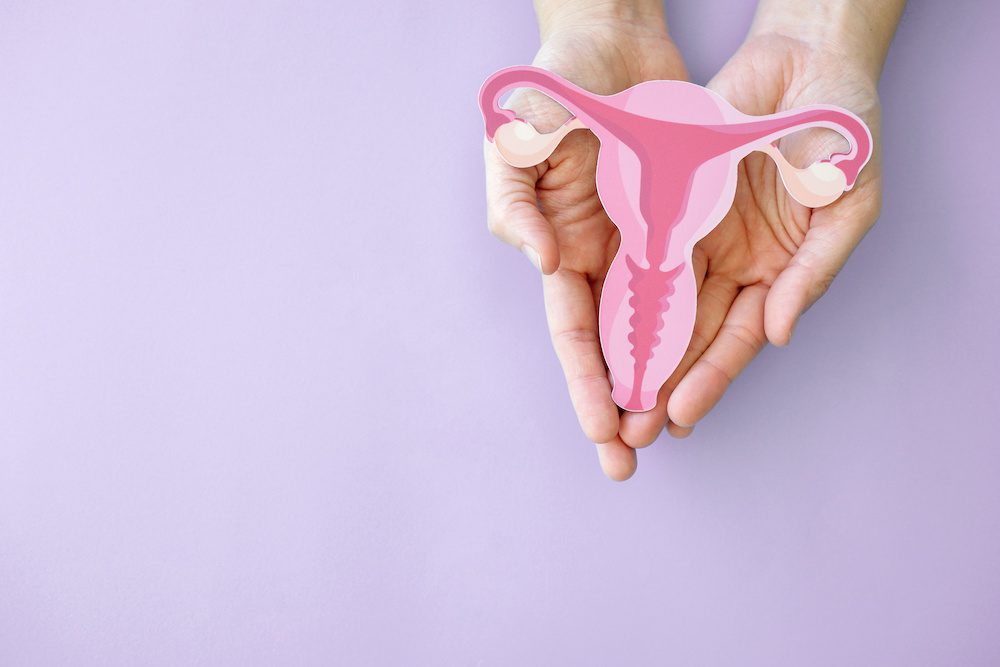Struggling with infertility is an undeniably difficult road. Infertility is when an individual or couple have tried to get pregnant for 12 months without a pregnancy. While this may happen due to male or female factors (or a combination of them both), this article is going to focus specifically on female infertility.
When infertility occurs due to female factors, it’s referred to as “female infertility.” Your fertility team will likely perform various tests and examinations to determine the potential cause, helping you find viable solutions or paths toward your baby dreams. So, what are the main causes of female infertility? What might you want to know?
Failure To Ovulate
Ovulation is necessary for an egg to be released from the ovaries and thus, eventually, get fertilized by the sperm. Unfortunately, there are many reasons why ovulation may not happen. For example, if a woman has an irregular period, hormonal imbalances may play a part and ovulation may be occurring but not on a regular or predictable basis.
Other factors that may contribute to failure to ovulate include substance abuse, previous eating disorders, polycystic ovarian syndrome (PCOS), an autoimmune response, stress, pituitary issues, thyroid problems, and more. Some of these are discussed in further detail in sections below.
Menstrual Problems
The menstrual cycle, as you may know, involves a monthly recurring cycle where menstruation happens, various hormonal changes occur, and ovulation also happens. This process, generally, prepares the body for ovulation and pregnancy. Yet, any irregularities or issues with this cycle can lead to infertility challenges.
Generally, most women have a cycle that is between 21 to 35 days. Yet, about 14-25% of women have cycle irregularities. This may mean their cycle is shorter or longer than usual. They may have varying symptoms, such as mood swings and cramps. Periods may vary between heavy and light or be abnormally light or heavy. Additionally, ovulation may not occur or may not occur regularly. Other problems may include a lack of menstruation altogether, which is known as “amenorrhea.” At the end of the day, any irregularities in any stage of the menstrual cycle may impact fertility and your ability to get pregnant.
Structural Problems In The Reproductive System
After ovulation has occurred, the eggs need to be able to move down the fallopian tubes in order to be fertilized by the sperm. If there is any blockage or excess tissue, this could prevent the egg and sperm from meeting and reduce your chances of getting pregnant.
Structural problems in the reproductive system in association with female infertility may include:
-
- Uterine Fibroids: These are tissue growths that happen in the uterine wall, which may prevent implantation of the embryo or create blockages. Most women with fibroids can get pregnant. Yet, a small percentage will struggle to get pregnant with uterine fibroids present.
- Endometriosis: This condition occurs when the tissue lining the uterus grows elsewhere. If this occurs in the fallopian tubes, infertility may occur.
- Uterine Scarring: This may happen from previous surgery, injuries, or infection, and it can create issues with implantation, as well as lead to miscarriages.
- Polyps: These non-cancerous growths happen inside the uterus, and may also make implantation or carrying a baby to full-term difficult.
- Uterine Shape: An abnormally shaped uterus can also lead to difficulties involving implantation and miscarriages.
Pelvic Inflammatory Disease
Many sexually transmitted diseases can lead to pelvic inflammatory disease. In particular, chlamydia and gonorrhea bacteria may move up the reproductive tract, potentially causing permanent damage to the reproductive organs. These infections may lead to lesions and other issues causing infertility.
Implantation Problems
As previously mentioned above, there are many instances when the embryo might not adequately implant on the uterine wall. This may happen due to embryo genetic defects, endometriosis, scar tissue, and a thin endometrium.
Endometriosis Infertility
About 25-50% of infertile women have endometriosis. With this condition, the tissue that usually lines the uterus grows elsewhere in the body, including along the reproductive tract. It’s further thought that the growth of this tissue may lead to structural changes, scarring, and even chemical changes impacting ovulation and implantation.
PCOS Infertility
Many women struggle with PCOS infertility. This condition is when a woman’s ovaries produce increased androgens than the typical amount. While various symptoms occur with PCOS, in terms of fertility, these androgen hormones may disrupt proper follicle maturation and ovulation. Furthermore, cysts (fluid-filled sacs) may develop on or in the ovaries, causing fertility problems.
POI Infertility
POI infertility, also called Primary Ovarian Insufficiency, is when a woman’s ovaries no longer produce eggs or the proper hormones to do so. This may happen early in life and make it difficult to get pregnant when the time comes. However, some women with POI do ovulate irregularly, making pregnancy not impossible. At the same time, it’s important to note that getting pregnant with POI naturally is fairly rare.
Uterine Fibroids
These non-cancerous growths arise within the uterus. They may be symptomatic or asymptomatic (meaning not every woman has symptoms!). Bigger fibroids measuring six centimeters or more are likely to cause infertility issues. Additionally, if a fibroid alters the position of the cervix, changes the shape of the uterus, blocks the fallopian tubes, or hinders blood flow to the uterus, female infertility may arise.
When To See A Fertility Specialist
Luckily, many cases of female infertility may be resolved with the help of an expert fertility team. If infertility is not solvable, your fertility team may also offer other options for you and your family.
If you’ve been trying to get pregnant for 12 months or more without success, it might be time to see a fertility specialist. At ELITE IVF, our team can help you every step of the way. Together, we can help make your baby dreams come true. Contact us today for more information.


